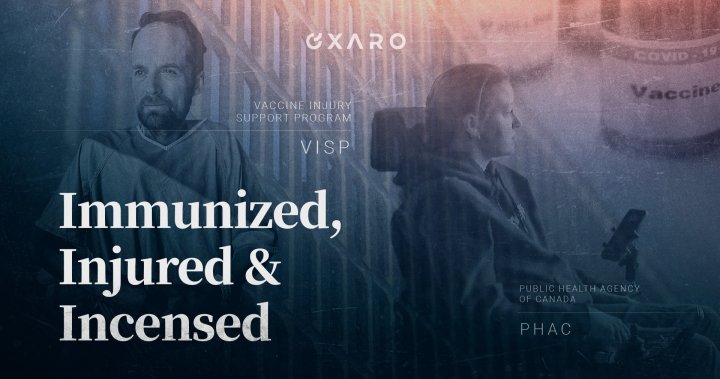A federal audit has revealed significant oversight deficiencies in Canada’s Vaccine Injury Support Program (VISP), raising questions about the management of the $75-million initiative designed to support those harmed by COVID-19 vaccines.
The program, launched during the height of the pandemic, has been operating without proper on-site inspections or verification of its administrator’s claim processing procedures for nearly three years, according to documents obtained through access to information requests.
Internal Health Canada records show that despite repeated recommendations for site visits to VISP administrator Oxaro Corporation, department officials consistently delayed these crucial oversight measures. The first comprehensive on-site audit wasn’t conducted until April 2023—almost three years after the program began accepting applications from Canadians reporting serious vaccine injuries.
“This represents a concerning gap in accountability for a program handling millions in taxpayer funds and affecting vulnerable Canadians,” said Dr. Eleanor Thompson, a healthcare policy analyst who reviewed the audit documents. “The lack of timely verification means we cannot be certain claims were being processed according to established protocols during most of the program’s existence.”
The internal correspondence reveals Health Canada officials acknowledged the need for site visits as early as June 2021 but repeatedly postponed them, citing COVID-19 restrictions despite other government departments resuming in-person operations. By March 2022, the department identified “risks of not conducting a site visit” but still delayed action for another year.
When auditors finally visited Oxaro’s Montreal offices in April 2023, they found concerning issues including inadequate documentation of claim eligibility assessments and inconsistent application of medical criteria—problems that might have been addressed earlier with proper oversight.
The VISP has distributed approximately $6.4 million to 144 approved claimants out of over 2,000 applications received. Critics argue the approval rate of roughly 7 percent suggests an overly restrictive approach to recognizing vaccine injuries.
The program’s administration has faced mounting criticism from patient advocates who claim the process is unnecessarily complex and lacks transparency. Sarah Milligan, whose father suffered a rare neurological condition following vaccination, described the claims process as “an endless maze of paperwork and delays.”
Health Canada spokesperson Marcus Chen defended the department’s oversight approach, stating: “While site visits were delayed due to pandemic restrictions, the department maintained regular communication with Oxaro and implemented alternative monitoring methods.” He added that the program has since strengthened its oversight mechanisms following the audit recommendations.
The revelations come amid broader questions about Canada’s pandemic response and healthcare system management. Public health experts emphasize that while COVID-19 vaccines have proven overwhelmingly safe, transparent compensation systems for rare adverse events are essential to maintaining public trust in vaccination programs.
As Canada transitions to post-pandemic health governance, this audit raises a critical question: How can we better balance the urgent implementation of emergency health programs with appropriate oversight mechanisms to ensure accountability and proper service to affected citizens?










